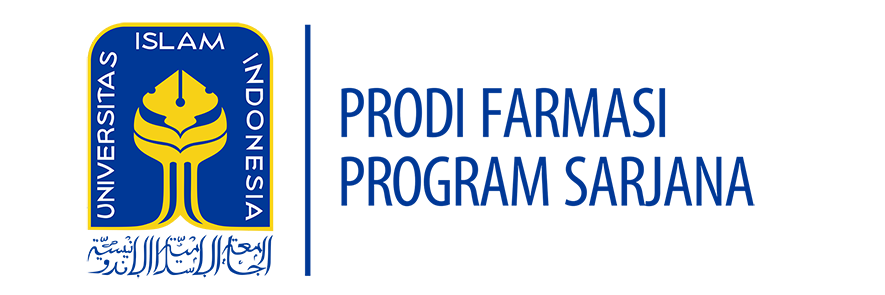COURSE INFORMATION
| Module Name | Immunology | |||
| Module Level, if applicable | 2nd year | Types of teaching and learning | Lecture & Group Projects | |
| Code, if applicable | SFA-329 | Class size | 50 & 50 | |
| Semester | 3rd Semester | Attendance time (hours per week per semester) | 1,5h & 1,5h | |
| Person responsible for the module | Dr. apt. Asih Triastuti, M.Pharm | Forms of active participation | Discussion & Report Writing | |
| Lecturer(s) | Dr. apt. Asih Triastuti, M.Pharm
Dr. apt. Arba Pramundita Ramadani, M.Sc. |
Workload | Lectures: 1.5 (hour) x14 meeting = 21
Preparation and follow up: 3 (hour) x 14 (self-learning) = 42 Preparation and follow up: 2(hour) x7 (self-preparation) = 14 Practical: 1.5 (hour)x 2 (meeting) = 3 |
|
| Language | Bilingual | Total workload | 80 Workload | |
| Relation to curriculum | Compulsory course | Credit points | 2 CU | |
REQUIREMENTS
| Requirements according to examination regulations | Minimum attendance at lectures is 75% (according to UII regulation). Final score is evaluated based on assignment and quiz (45%), mid semester exam (20%), and end semester exam (25%). |
| Recommended prerequisites | Human anatomy and Physiology |
| Related course | – |
| Study and examination requirements and forms of examination | Mid-term, final term, assignment, quiz |
MODULE OBJECTIVES/INTENDED LEARNING
By the end of this course students should be able to:
- Students obtain learning experiences through learning video of related topic, collaborative learning via Google Jamboard and Google document
- Students acquire learning experiences through pretest, learning video and quiz
- Students earn learning experiences through resume composing of related topic and group discussion
- Students get learning experiences through learning video, quiz, resume making and article review
- Students gain learning experiences through discipline, responsible and trustworthy on task completion
CONTENT
This course aims to introduce students to the main themes of the application of biomedical science in the pharmaceutical sciences and to understanding of the basic theoretical approaches and concepts of the innate and adaptive immune responses as well as the basic concepts of vaccination, diseases related to the immune system and immunological examinations.
MEDIA EMPLOYED
Text books, web, slides (power points), video, interactive media
READING LISTS
- Abbas, K., Lichtman, A., 2009, Basic Immunology Functions and Disorders of the Immune Systems, Saunders-Elsevier. Philadelphia.
- iBiology: https://www.ibiology.org/educators-resources/flipped-courses/immunology-flipped-course/
- Janeway, C. A., Travers, P., Walport, M., 2012, Janeway’s Immunobiology, 8th., Garland Science, New York.
- Khanacademy: https://www.khanacademy.org/science/biology/human-biology/immunology/v/role-of-phagocytes-in-innate-or-nonspecific-immunity
- Nature immunology: https://www.youtube.com/channel/UC7c8mE90qCtu11z47U0KErg
- Walter + Eliza Hall: https://www.wehi.edu.au/wehi-tv/animation
